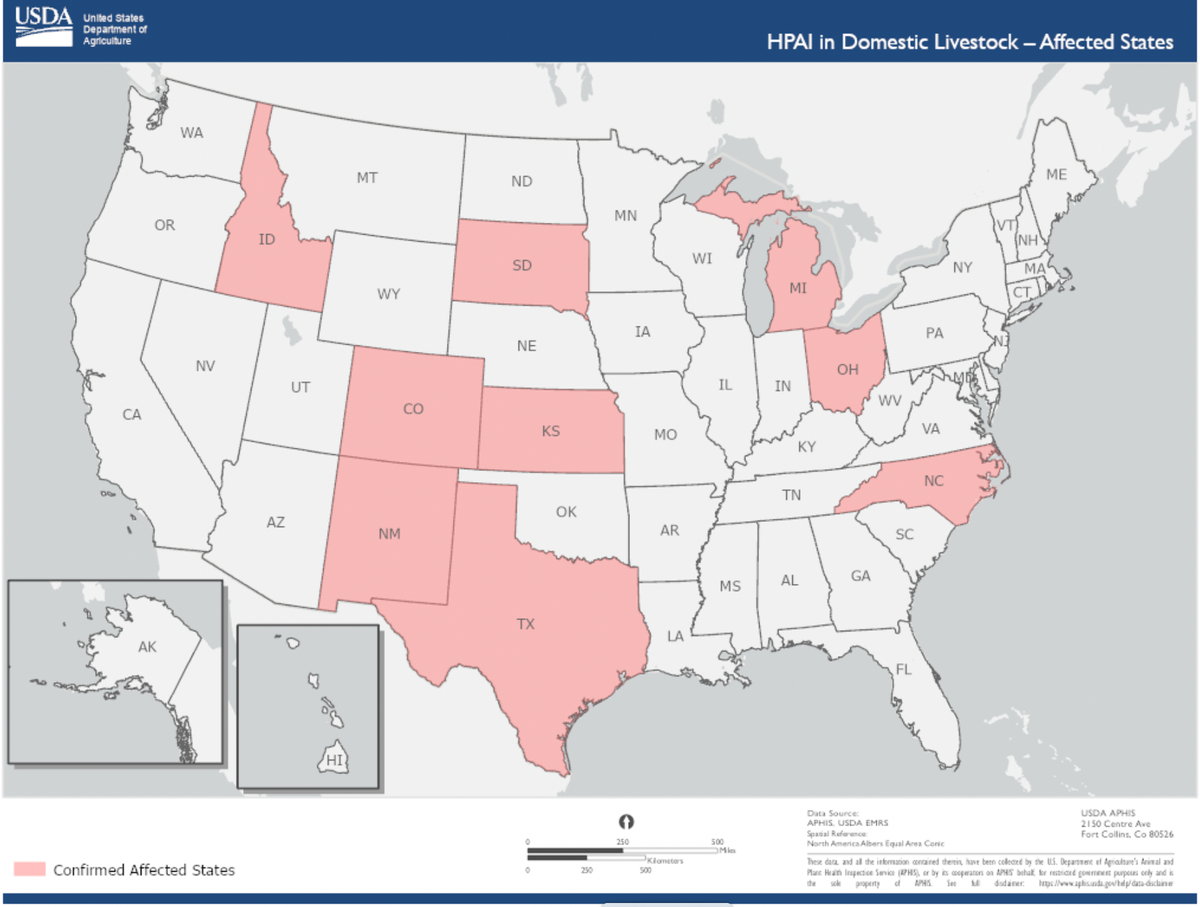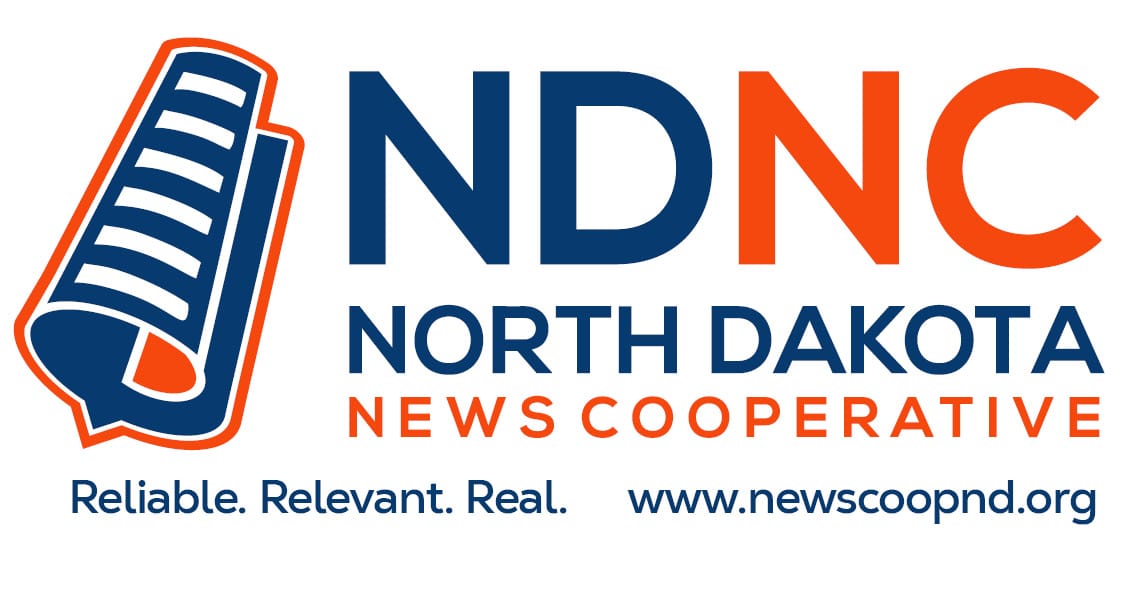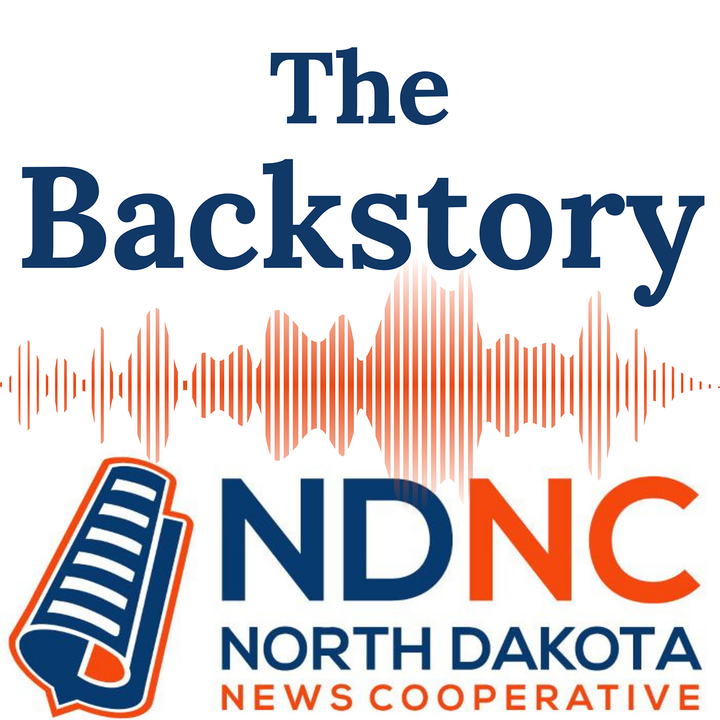ND raw milk producers cautious as federal authorities raise concerns
State vet urges vigilance, warns of “inherent risks”

Raw milk from North Dakota dairy cows carries a low risk of avian flu contamination, say local producers, but they are still increasing precautions.
The so-called bird flu has been detected in dairy cows in nine other states, including South Dakota, and the Food and Drug Administration has advised against drinking raw milk.
This issue comes less than a year since the lifting of a rule against selling raw milk in North Dakota, though sales can only be at the direct consumer level, not to wholesale or retail outlets or across state lines.
There are currently about two dozen raw milk producers in the state.
One is Peter Bartlett of Bartlett Farms, Bottineau, who said he received a cautionary notice from the North Dakota Milk Producers Association. The notice advised caution when buying cows and to keep close watch for illness in the herd. He said customers are not deterred.
“A pasture-based farm that’s not confining its animals in more close confinement like a conventional dairy would be a lot less susceptible,” Bartlett said.
Bartlett said he already follows three levels of safety protocols to ensure the health of his cows.
Since the restrictions were eased on sales of raw milk last year Bartlett has seen a
steady and growing interest from consumers.
“In the past six months, we seem to have had almost twice as many inquiries about
milk,” he said. “So that's a good sign. I think that now that the law passed, people look at it as a valid option.”
Ty Petersen of Bev’s Best Dairy, Monango, agrees that larger dairy farms with confined cows are more at risk from transmission and that smaller operators have a better grip on the health of individual animals.
He said he isn’t greatly concerned about avian influenza infecting his cows.
“Just being a fussy producer helps a lot, that’s a big part of it, and you know just being around them cows all day you notice stuff lickety split.”
Ava Brokaw of Brokaw Ranch, Kulm, said she is very meticulous about the cleanliness of her cows and quality of her raw milk.
“If I question anything, I dump it,” she said. “I would never sell anything where I
questioned whether my cow was sick or not.”
Brokaw said she’s had “a ton of people reach out” since the restrictions were lifted, and that people should do their research on whatever it is they are consuming.
“I’ve got kids and I want to make sure that everything that I'm giving them is good, you know, so I read up on the risks on it,” Brokaw said. “But for us, we've had more
problems with store bought milk than raw milk.”
Inherent risks
North Dakota’s Department of Agriculture regulates production of pasteurized milk, but not raw milk.
The North Dakota Department of Health and Human Services can only offer guidance, according to Heather Steffl, communications manager of the Public Health Division.
“Pasteurization is the safest choice,” Steffl wrote in response to an inquiry from the
North Dakota News Co-op.
State veterinarian Dr. Ethan Andress said consuming raw milk has “inherent risks” aside from the possible transmission of highly pathogenic avian influenza.
“There are organisms that contaminate raw milk that have the potential to cause people to get sick and occasionally die.” He said it’s the same risk for all raw food, from oysters to meat.
Andress advises raw milk producers to minimize contact with wild birds because it is hard to know if they are infected and ensure that feed is protected from exposure to wild birds.
Milk production is a key indicator of a cow’s health. “The most common sign (of illness) is a drop in milk production,” Andress said.
But even with precautions, some infected cows may not show signs of sickness.
“I think the most frustrating part of this is the asymptomatic part, that some of these cows have an infection but aren't getting sick,” Andress said. “Just like people when we get influenza, you have varying levels of how bad people get sick and the same thing occurs in cows.”
The closest the avian influenza virus H5N1 has been found in dairy cows is in South Dakota. Other states where it’s been detected are Colorado, Idaho, Kansas, Michigan, New Mexico, North Carolina, Ohio and Texas.
There have been no cases of avian influenza detected in North Dakota, according to the North Dakota Department of Agriculture. Most cases from 2023 occurred in the fall.
Transmission risks still undetermined
Federal officials believe the virus is spreading among cows due to contact with milk from other infected cows, but that further testing is needed.
It is also currently unknown if humans can contract the virus through consuming raw milk from infected cows.
Pasteurization of milk inactivates the virus, according to the FDA. The agency has
tested commercially produced pasteurized milk and other dairy products in 38 states and found no live, infectious virus in pasteurized milk.
A recent study published by the Center for Disease Control and Prevention found that cats that consumed raw milk from avian influenza-infected cows became sick and some died.
Dr. Angela Rasmussen, a virologist at the Vaccine and Infectious Disease Organization at the University of Saskatchewan in Canada, told NDNC that while “we don’t know if people can get H5N1 from drinking raw milk,” due to the high levels of viral loads, “it’s very much a possibility.”
Animals such as cats, dogs, and bears that eat dead birds have gotten diseased, and
some died, from that consumption, Rasmussen said.
An FDA statement from May 1 said the agency is continuing to test samples of pooled raw milk routed to pasteurization and processing for commercial use. The FDA currently “advises strongly” against the consumption of raw milk and recommends that industry does not manufacture or sell raw milk or raw milk products.
The FDA has also recommended that precautions should be taken discarding milk from infected cows so it does not become a source of further spread.
The North Dakota News Cooperative is a nonprofit news organization providing reliable and independent reporting on issues and events that impact the lives of North Dakotans. The organization increases the public’s access to quality journalism and advances news literacy across the state. For more information about NDNC or to make a charitable contribution, please visit newscoopnd.org.
Notes:
- The attached map and other information can be found here at the USDA website: https://www.aphis.usda.gov/livestock-poultry-disease/avian/avian-influenza/hpai-detections/livestock
- The latest notices on avian influenza from the FDA are available here: https://www.fda.gov/food/alerts-advisories-safety-information/updates-highly-pathogenic-avian-influenza-hpai#rawmilk



